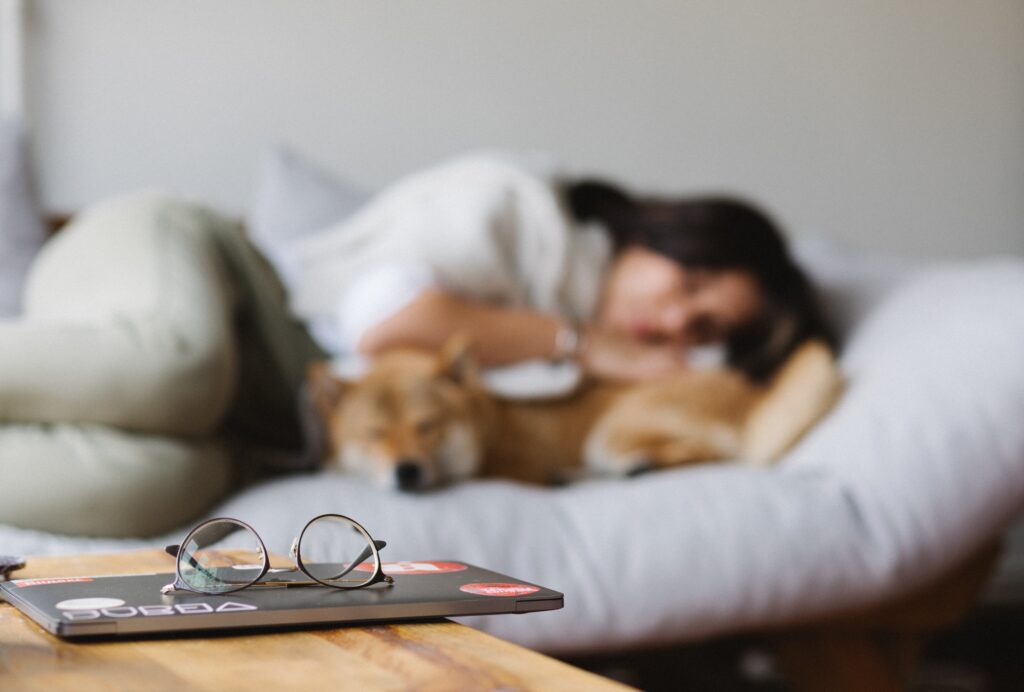Reclaiming Your Sleep: a busy mom’s guide to quality rest

Are you a busy mom who has lost control of your health, at least in part due to disrupted and insufficient sleep?
You’re not alone!
Juggling family, work and personal commitments can leave you feeling exhausted and irritable, and make it hard to get enough sleep.
But, the good news is, with a few simple changes to your daily routine, it is possible to improve your sleep quality and energy levels.
Here are five practical tips and strategies to help you reclaim the sleep you deserve:
1. Establish A Consistent Sleep Schedule:
Try to go to bed and wake up at the same time every day, even on weekends. This helps regulate your body’s internal clock, making it easier to fall asleep and wake up feeling refreshed.
2. Create A Relaxing Bedtime Routine:
Design your own calming pre-sleep routine to signal to your body that it’s time to wind down. This could include activities like reading, taking a warm bath, practicing deep breathing, or doing some gentle stretches.
3. Optimize Your Sleep Environment:
Ensure that your bedroom is a comfortable and quiet space. Make it as dark as possible (black out curtains are great here!), invest in a comfortable mattress and pillows, try white noise or the use of fan, and adjust the room temperature to keep it cool but comfortable.
4. Limit Screen Time:
This is such an important tip! While it might seem simple, it can be hard to put in practice! We know that the blue light emitted from smartphones, tablets, and computers can disrupt your body’s natural sleep-wake cycle, and affect the quality of your sleep. Try to avoid screens for at least 30 minutes before bedtime, and aim for 60 minutes if possible.
5. What To Do If You Can’t Sleep:
Lying awake in bed strengthens an unhelpful association with the bed, and can cause rumination, worry and stress. If you’re unable to sleep after about 20 minutes, try getting out of bed and going to another quiet cozy spot. Have activities nearby that keep you occupied, but not overly stimulated. Examples might include a notebook and pen, a book, audio/music, or art materials. Avoid reaching for your phone or other screens. Once you are feeling sleepy, try going back to your bed.
Other things that have been shown to be helpful include exposure to morning light to signal the beginning of the day and prevent the body clock from drifting onto a later schedule. Daytime light also boosts mood and alertness. Try going for a quick morning walk or sipping your coffee outdoors.
In addition, try dimming lights in the evening and avoiding too much light from screens and artificial light in the few hours before bedtime. Some ways to do this include setting up automated blue-light filters on your devices, dimming lights, and using blue light blocking glasses.
Regular physical activity, avoiding caffeine and alcohol too close to bedtime, and stress management are other strategies to prioritize to help you get the sleep you need to thrive in all aspects of your life.
As always, these tips are for general health information only. Please discuss any matters related to your health with your own health care practitioner.
Which tip is your favourite? Let me know in the comments below!
Leave a Reply Cancel reply
I’m Valerie Hertzog, a MD and wellness coach that helps busy stressed out women reclaim control of their health.
Stress Relief Planner
@dr.valerie.hertzog
Connect with me on Instagram!
Grab the free
Connect
Info
Copyright 2025 Valerie Hertzog | Design: Jules Design